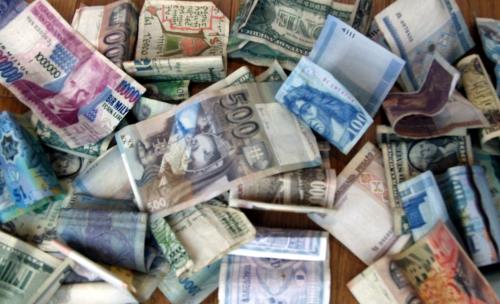Today, when one travels abroad, it is a popular practice to carry physical cash along for the travel trips. Cash can especially come in handy when you travel to more rural areas where the local markets do not accept debit or credit cards as payment. What’s more, the destination where you are travelling to may or may not have an available ATM. Let’s take a look at the importance of physical cash and explore other alternatives for travel currency:
The reason why many travellers use cash

Some travellers want to keep physical money in their pockets as it gives them peace of mind that they can still make a purchase at any locality that they visit. What’s more, some travellers prefer to explore non-touristy areas so when you get to the heartlands in certain countries, it is often that transactions are only made in the local cash currency instead of plastic cards.
In addition, some individuals also understand that they can incur higher fees by debiting their bank account while travelling abroad. Forgetful travellers may also have had the experience of being denied the use of their debit or credit card as they have not contacted their respective banking companies to authorise overseas transactions.
While it may not be the case of financial institutions doing their job to protect travellers from potential fraud, it is often the inconvenience that bothers people. Due to the potential difference in time zones, it can even take up to half a day to contact the bank in their home country to approve certain transactions.
Is it still safe to use cash when travelling abroad?
You should know that nothing is 100% secure, but yes, it is still safe to use cash while travelling. Just be sure to sort your money out and exchange to the local currency.
It is wise to heed the advice given by travel experts so for starters, you should never keep all your travel cash in one place. The trick is to divide and conquer. You can consider separating your cash into several piles and store them in zippered bags. Remember to squeeze the extra air out of the bags so you can hide them easily in places such as your rented car or even a leg money belt.
When you are abroad, you are often unfamiliar with the local culture and how they might treat tourists. Hence, you will always want to be discreet with your money in the public and not draw unnecessary attention. A good practice is to only carry small bills that are sufficient for the day’s activities.
Is cash still the currency of choice? If not, what other alternatives are out there?
Today, you are no longer limited to carrying physical cash when you travel abroad. If you are travelling to Sydney which is a prime example of developed cities, you will find that there are more payment options to choose from. Besides the very popular credit cards, here are some lesser known examples:
- Travellers’ cheques: These are pre-printed cheques that you get from your banking company, and they contain a fixed amount. They can be used to facilitate payments across currencies. These cheques will never bounce because you have already paid for it. Travellers’ cheques are considered to be safer than carrying cash because signature verification and identification is needed to cash it. If this cheque is stolen or lost, the issuing bank will replace it for you.
- Online money transfers: This mode of payment is becoming increasingly popular as it is secure and fast. It also prevents you from being tempted to overspend with your credit card. What’s more, online money transfers offer favourable exchange rates and transfer fees are kept pretty low.
- E-wallet: These services are also growing in popularity and perfectly suits markets with higher smartphone penetration. E-wallet services fuse the best of cash currency and debit cards, giving you full control over how much you want to spend. There are many plus points with this payment option. For instance, the debit function makes it really easy to track your spending, especially when you are travelling. However, the E-wallet ecosystem has not matured yet, and many places are not ready to accept it on a wide scale.
When you travel, it is recommended that you have access to various payment methods so that you can enjoy safe travels with great convenience. Although digital currencies are rapidly proving themselves to be great alternatives for travellers, it is safe to speculate that physical cash still has its relevance as the main travel currency for many years to come.